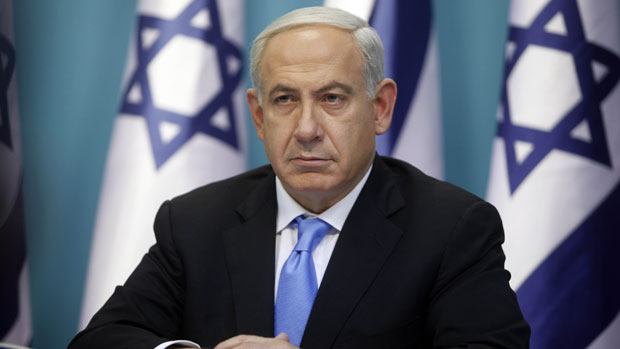Israeli cabinet collapse triggers early election
Israeli prime minister fires two ministers sending Israel to the polls just two years after the last election

A free daily email with the biggest news stories of the day – and the best features from TheWeek.com
You are now subscribed
Your newsletter sign-up was successful
After months of political bickering, Israeli prime minister Benjamin Netanyahu fired two cabinet ministers last night, triggering an early election.
Netanyahu sacked the justice and finance ministers from his cabinet, paving the way for the dissolution of the Knesset and bringing about fresh elections just two years after Israel last went to the polls.
Why did Netanyahu fire his coalition partners?
The Week
Escape your echo chamber. Get the facts behind the news, plus analysis from multiple perspectives.

Sign up for The Week's Free Newsletters
From our morning news briefing to a weekly Good News Newsletter, get the best of The Week delivered directly to your inbox.
From our morning news briefing to a weekly Good News Newsletter, get the best of The Week delivered directly to your inbox.
Relations have been strained between the ruling Likud party and its coalition partners since Netanyahu attempted to push through a proposal to declare Israel to be the "nation-state of the Jewish people".
The bill was opposed by Tzipi Livni, the justice minister, who leads the centre-left Hatnua party as well as Yair Lapid, the finance minister and head of the centrist Yesh Atid party.
Consequently, the early dissolution of the Knesset does not come as much of a surprise, the BBC's Jerusalem correspondent Kevin Connolly said on the Global News podcast: "The contradictions were there from the very start. It is a coalition composed of parties that don't really have an enormous amount in common with each other.
"Ideologically they would take very different views, for example, on the desirability of trying to negotiate a peace deal with the Palestinians. So some quite fundamental questions divide people who have been sitting together around the cabinet table."
A free daily email with the biggest news stories of the day – and the best features from TheWeek.com
What will happen at the next election?
Lapid has accused Netanyahu of pulling Israel into an unnecessary election. "The prime minister chose last night to act irresponsibly and not fulfil his promises to the public," he said.
But Netanyahu insists that another election is necessary to provide him with "a clear mandate to lead Israel".
Insiders say that the fresh election is an attempt to reconstitute the Knesset with more Likud and conservative members to make it easier for the prime minister to pass legislation.
Current opinion polls suggest Natanyahu's instincts are right, and that a vote next year will likely bring a more right-wing coalition government to power, with Atid's secular party being replaced with "a religious block representing the interest of ultra-orthodox Jews," the BBC reports.
The Chairman of Netanyahu's Likud party, Danny Danon, said: "After Likud is victorious at the ballot box, we must be sure not to repeat mistakes of the past and form the next coalition government with loyal and like-minded parties that are interested in serving as true partners in leading our great country."
How will this affect Israeli-Palestinian relations?
According to The Guardian, Danon's statement "suggests a far-right coalition, with a major emphasis on Jewish settlement and Jewish-oriented legislation".
The Palestinian foreign minister Riad Malki said there were concerns that a more right-wing Israeli government could become more "extreme". But, he added, this may actually be counterproductive for Israel as it could end up "bolstering international support for the Palestinian cause," AlJazeera reports.
US Secretary of State John Kerry said he would not comment on the "internal politics" of Israel, but added, "obviously we hope that whatever government is formed, or whether there are elections, that those elections will produce the possibility of a government that can negotiate and move towards resolving the differences between Israelis and Palestinians."